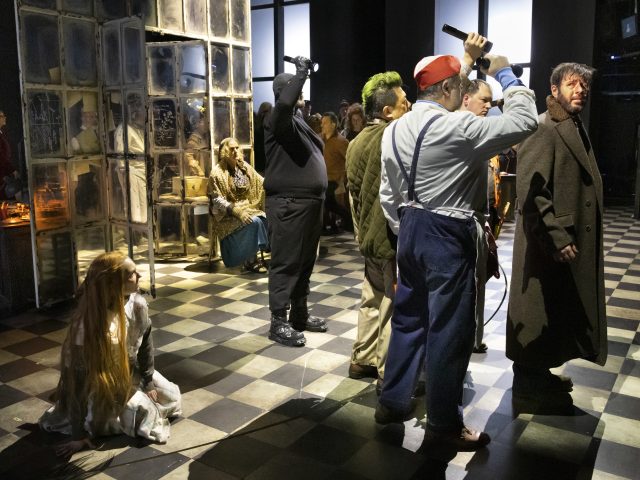The musical themes in Brodeck
Fri, Jan 26, 2024

For the music of the new opera Brodeck, composer and opera lover Daan Janssens drew inspiration from his great examples. He chose to give the characters and events in the story their own musical motif, just as opera composer Richard Wagner did. We are happy to share a taste of what the motifs will sound like.
THE ANDERER
The 'Anderer' is an eccentric figure. He is a stranger who took up residence in Brodeck's village, but the villagers are not happy with his arrival. He confronts them too much with a past they would rather forget. As a result, it doesn't take long before they want to get rid of him: the Anderer is cold-bloodedly murdered by the men of the village. When Brodeck accidentally discovers what happened, the villagers task him with writing a report on the events. In his report, he tries to reconstruct why it came to this.
Brodeck describes the Anderer as a magical apparition with special, sophisticated clothing. He talks more to his donkey and horse than to the other villagers and is constantly drawing in a small sketchbook. In the opera, the Anderer is played by actor Josse De Pauw. The fact that he is the only one who does not sing also makes him an eccentric on the opera scene. In the music, you recognise the Anderer through the use of the harp, glockenspiel and vibraphone - instruments that instantly evoke a mysterious fairytale world.
THE WAR
The village of Brodeck has a dark past: during the war years, the place was taken by soldiers and the occupying forces claimed the foreigners or Fremdër to deport them to prison camps. The villagers collaborated and committed some horrific war crimes. When Brodeck's account harks back to those war times and all that ensued, agitated strings, clattering brass and wild percussion sounds rise from the orchestra pit.
EMÉLIA
When we are introduced to Emélia, Brodeck's wife, we notice that something is wrong: she stares lifelessly ahead and sings the same song over and over again. During Brodeck's reconstruction of the events surrounding the Anderer, he also takes time to reflect on his own past. At one point, he recalls his student days in the capital. There he met the cheerful, lively Emélia and fell in love instantly. We discover that the origin of Emélia's song is the waltz they danced to together. Another memory reveals that Emélia was a victim of terrible war crimes. Since then, the traumatised Emélia only sings the song on which she met Brodeck, the love of her life. Her motif is a musical inversion of that song, played by the clarinet.
GÖBBLER
As Brodeck attempts the difficult task of putting the villagers' wartime past and the Anderer's murder into an account, the villagers keep a close eye on him. For instance, his neighbour Göbbler is always nearby, as if he is all too anxious to know how Brodeck is making his trial. Brodeck does not trust him one bit. A jarring motif in the strings sound out Göbbler's agitation and interference.
Photo top: Annemie Augustijns
Antwerp | Gent
Brodeck
Daan Janssens
